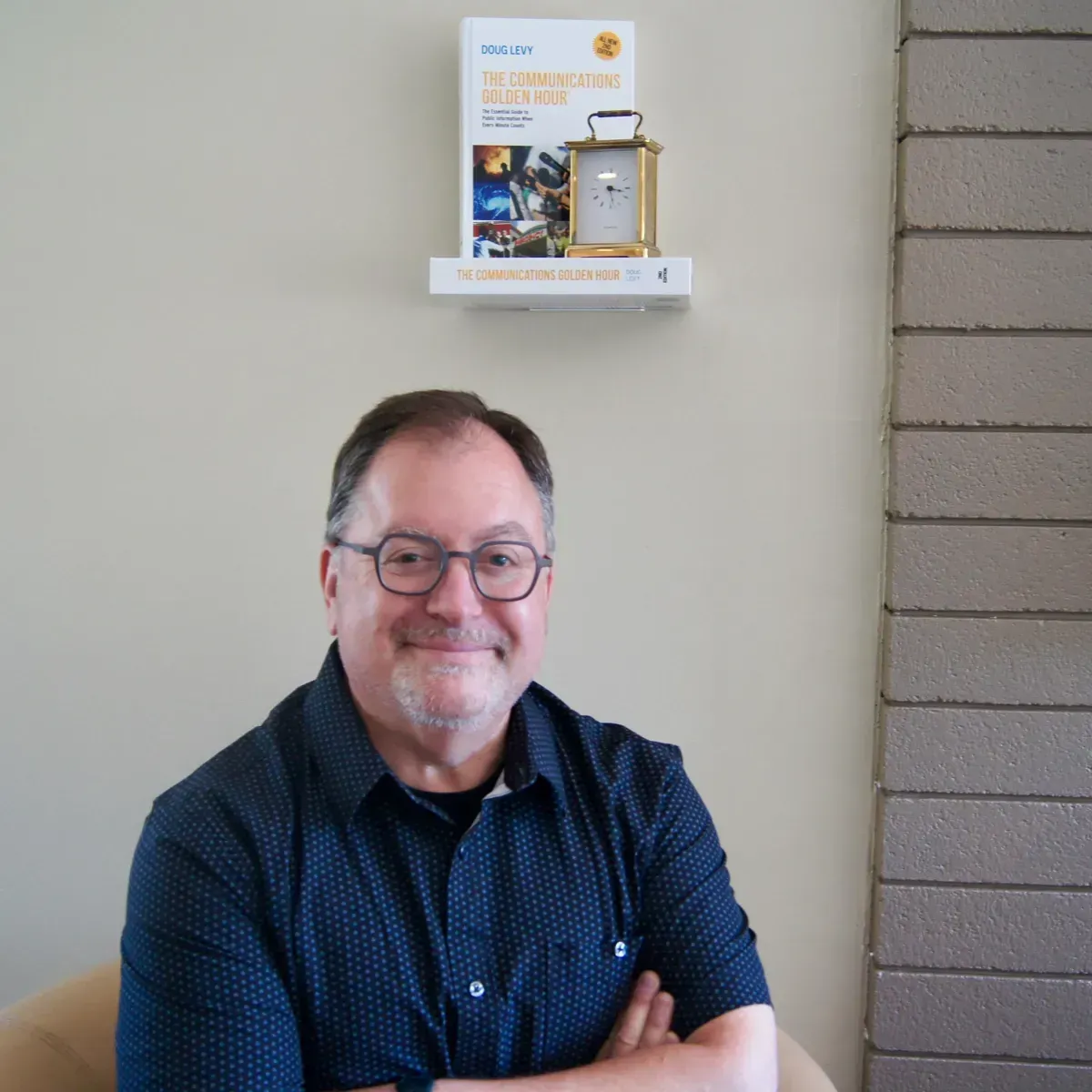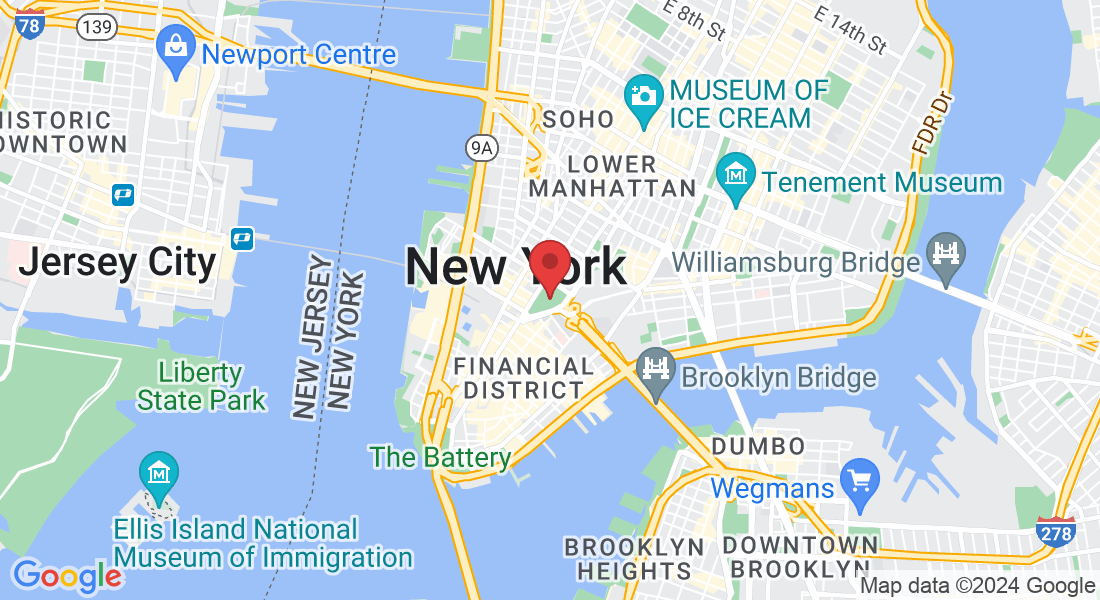
About Doug Levy
I'm a communications strategist. I spent 20 years as a reporter covering front-page stories including crimes, wildfires and other disasters, medical and scientific research, policy debates, and misconduct. I trained as a firefighter and emergency manager, learning the ins and outs and complexities on the front lines of emergencies.
Since then, I have been a trusted communications advisor with a track record of helping police and other government officials, medical center leaders, scientists, and universities prepare for, navigate, and respond to crises and adapt in the era of nonstop social media communication, partisan news outlets, and divided communities.
My book, The Communications Golden Hour: The Essential Guide to Public Information When Every Minute Counts, has been an acclaimed handbook for public information officers since it was first released in 2018.
Decades Of Precision Wordsmithing
My interest in writing The Communications Golden Hour® started when I saw leaders stumble with communications under pressure. As a reporter, I frequently heard officials and corporate leaders use words that would later turn out to have been mistakes—in some cases, extending the duration of otherwise finite crises. Bungled communications have even caused tragic deaths that might have been preventable. The book's goal is to prevent communicators from using confusing words, giving ambiguous locations, or omitting essential details from emergency instructions.
I began my career as a journalist, eventually covering the federal government and other beats for national media outlets based in Washington, D.C. My investigative reporting garnered numerous awards, including a Peabody.
After transferring to the technology business beat for two years, I left journalism and began my second career, as a corporate communications consultant, specializing in crisis communications for incidents including industrial accidents, product liability, employee relations and emergency response. My clients included organizations that experienced violence directed at scientists or leaders, public protests and criminal or ethical lapses, as well as companies facing more “routine” crises such as industrial accidents or customer injuries, product liability or other litigation, and executive or corporate transitions.
From 2004–2009, I led communications at the University of California, San Francisco, School of Medicine, and from 2010-2015, I was chief communications officer of what is now the Columbia University Irving Medical Center in New York. At Columbia, I introduced innovative science communications tactics, including a video program that attracted more than one million viewers and won a major national award within the first year of its launch. As chief communications officer, I was part of the university’s emergency management team and directly involved in responses to Hurricane Sandy, major cybercrimes, and an Ebola infection detected in the campus community.
Since leaving Columbia, I wrote several books on emergency communications: The Communications Guide for Coronavirus: Best Practices for Business, Government and Public Health Leaders, one of the first books to help institutional communicators navigate the coronavirus pandemic, and The Communications Golden Hour, now in its second edition.
When I’m not writing a book, I coach clients and others on emergency and other communications and conduct media and presentation training.
Working with security teams and law enforcement, Doug has shown how to leverage social media as an early warning system to get in front of a situation and be proactive in mediating risk. His ability to dig deep and recognize details that others miss allows him to see potential crises before they arise and to work with clients to minimize reputation damage or harmful backlash.
A true early adopter (his first computer was an Osborne-1) and innovator (first USA Today reporter with an email address,) Doug’s investigative reporting revealed tobacco industry secret research on cancer and addiction, mismanagement at celebrity-run charities, and conflicts of interest in medicine. He helped focus attention on the epidemic of medical errors and the challenges surrounding widened use of opioid pain relievers.
His ability to dig deep and recognize details that others miss enables him to identify potential crises and work with clients to minimize reputation loses or harmful backlash.
As a freelance writer, Doug writes about health, science, and technology and consults on communications strategy, issues management, and emergency communications. His wide range of experience in multiple disciplines forms the backbone of Doug Levy Communications LLC, a communications consultancy formed in 2015.
He is admitted to practice law in Maryland and is a member of the American Bar Association, the International Association of Chiefs of Police (PIO Section,) the Association of Healthcare Journalists and the National Association of Science Writers.
Levy is an active volunteer, supporting organizations that reduce hunger and homelessness, improve health and access to healthcare, and expand access to education, including news literacy.

